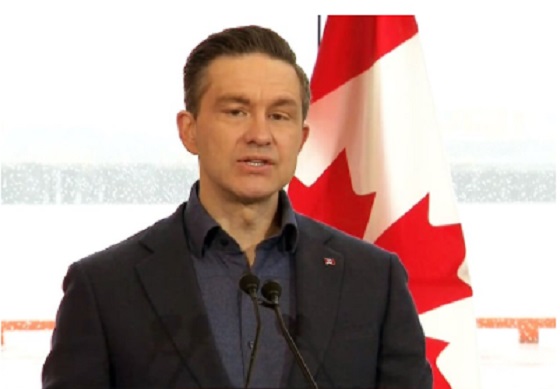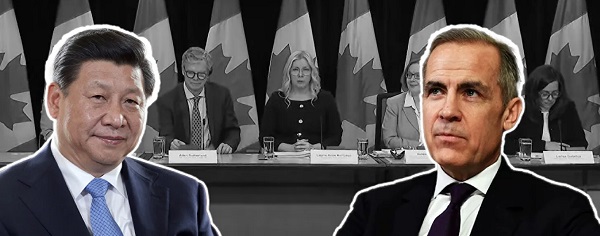Uncategorized
Superman to The Fonz: Vintage lunchbox collection on sale

Here’s a link to Main Auction Galleries Inc. Facebook page..
CINCINNATI — Look, up on the shelf! It’s Superman. There’s the king of the wild frontier himself, Davy Crockett. And over in that case is Davy Crockett again, except this time he’s Daniel Boone (we’ll explain later). And aaaaay! It’s The Fonz and the whole “Happy Days” family!
A veteran auctioneer has on display a baby boomer delight: hundreds of vintage lunchboxes featuring the heroes of their childhood comic books, TV shows, cartoon strips, movies and more.
“I’ve never had anything like this,” said J. Louis Karp, whose family-run business has been part of Cincinnati since the first years after the Civil War. “This is quite different.”
Sure, you can go to any number of websites to buy old metal lunchboxes from the 1950s, ’60s and ’70s. But to see 250 of them in the same place, to be able to pick them up, and then spot one just like mom packed for you with a peanut butter-and-jelly sandwich in the first grade. …
But back to the auction.
Karp regularly sells large estates loaded with rare artwork, antique furniture and collectibles. He has sold vintage lunchboxes before, but never so many. The private collection’s proceeds will benefit younger generations of the owner’s family.
Weldon Adams, a collectibles expert for Dallas-based Heritage Auctions, viewed the lunchboxes online and said such a large, eclectic sale is a rarity.
“We’ve seen some sizable collections,” said Adams. “Having all of them show up at one time is truly an impressive thing.”
Younger people who like kitsch are among lunchbox buyers, Adams said, but they are particularly attractive to those who carried them as children because they are a powerful link “back to our identities of who we were as a child.”
Karp has 250 for an auction ending Sept. 30. There are another 200 he’s planning to auction before the Christmas holidays.
There are lunchboxes with the late actor Fess Parker, who played Crockett and Boone in separate TV series. There is “The Brady Bunch” and “The Partridge Family.” ”The Addams Family” and “The Munsters.” ”Nancy Drew” and “The Hardy Boys.” The Bee Gees and Bobby Sherman.
There are lesser-known ones: “Korg 70,000 B.C.” ”The Guns of Will Sonnett.” ”Goober and the Ghost Chasers.”
Adams said a “wonderfully obscure” one he noticed was from “Here Come The Double Deckers,” a British children’s TV show. Another is from “Fireball XL5,” an early 1960s children’s science fiction show with a fan cult.
“I’m stunned at the breadth of it,” Adams said of the collection.
Bids start at $20 each. Karp shouted upstairs to son Justin, who with his brother Jonas marks the fifth generation of Karps in the auction business, to ask how much different lunchboxes have sold for online.
“Lost In Space” TV series and “The Flintstones” animated series? $225 each.
“How about Popeye?”
“Who’s with Popeye?”
“Olive Oyl, Brutus …”
“Are they in a boat?”
“Yes, fishing.”
“$190.”
Unfortunately, Karp said, many of the lunchboxes lack the Thermos beverage bottles that originally came with them. Those without could draw lower bids.
Karp, 71, reluctantly allowed his sons to bring his auctions into the internet age, and the business takes bids online from anywhere, and by email and phone. But he still enjoys his showroom-floor auctions, seeing the competitors watching one another, and the winners who finally emerge after rounds of tense bidding.
And this Sunday, he might just see some with tears in their eyes.
___
This story has been clarified to show that Thermos beverage bottles are a brand.
___
Cincinnati correspondent Dan Sewell’s first lunchbox was “Wagon Train,” but his favourite was “Roy Rogers and Dale Evans.” Follow him at http://www.twitter.com/dansewell
Dan Sewell, The Associated Press
Uncategorized
Poilievre on 2025 Election Interference – Carney sill hasn’t fired Liberal MP in Chinese election interference scandal

From Conservative Party Communications
“Yes. He must be disqualified. I find it incredible that Mark Carney would allow someone to run for his party that called for a Canadian citizen to be handed over to a foreign government on a bounty, a foreign government that would almost certainly execute that Canadian citizen.
“Think about that for a second. We have a Liberal MP saying that a Canadian citizen should be handed over to a foreign dictatorship to get a bounty so that that citizen could be murdered. And Mark Carney says he should stay on as a candidate. What does that say about whether Mark Carney would protect Canadians?
“Mark Carney is deeply conflicted. Just in November, he went to Beijing and secured a quarter-billion-dollar loan for his company from a state-owned Chinese bank. He’s deeply compromised, and he will never stand up for Canada against any foreign regime. It is another reason why Mr. Carney must show us all his assets, all the money he owes, all the money that his companies owe to foreign hostile regimes. And this story might not be entirely the story of the bounty, and a Liberal MP calling for a Canadian to be handed over for execution to a foreign government might not be something that the everyday Canadian can relate to because it’s so outrageous. But I ask you this, if Mark Carney would allow his Liberal MP to make a comment like this, when would he ever protect Canada or Canadians against foreign hostility?
“He has never put Canada first, and that’s why we cannot have a fourth Liberal term. After the Lost Liberal Decade, our country is a playground for foreign interference. Our economy is weaker than ever before. Our people more divided. We need a change to put Canada first with a new government that will stand up for the security and economy of our citizens and take back control of our destiny. Let’s bring it home.”
Uncategorized
Canada Needs A Real Plan To Compete Globally

From the Frontier Centre for Public Policy
Ottawa’s ideological policies have left Canada vulnerable. Strategic action is needed now
As Canada navigates an increasingly complex geopolitical landscape, the next federal government must move beyond reflexive anti—Americanism regardless of its political leanings. Instead, Canada should prioritize national interests while avoiding unnecessary conflict and subservience.
The notion that Canada can stand alone is as misguided as the idea that it is only an economic appendage of the United States. Both perspectives have influenced policy in Ottawa at different times, leading to mistakes.
Rather than engaging in futile name-calling or trade disputes, Canada must take strategic steps to reinforce its autonomy. This approach requires a pragmatic view rooted in Realpolitik—recognizing global realities, mitigating risks, governing for the whole country, and seizing opportunities while abandoning failed ideologies.
However, if Washington continues to pursue protectionist measures, Canada must find effective ways to counteract the weakened position Ottawa has placed the country in over the past decade.
One key strategy is diversifying trade relationships, notably by expanding economic ties with emerging markets such as India and Southeast Asia. This will require repairing Canada’s strained relationship with India and regaining political respect in China.
Unlike past Liberal trade missions, which often prioritized ideological talking points over substance, Canada must negotiate deals that protect domestic industries rather than turning summits into platforms for moral posturing.
A more effective approach would be strengthening partnerships with countries that value Canadian resources instead of vilifying them under misguided environmental policies. Expand LNG exports to Europe and Asia and leverage Canada’s critical minerals sector to establish reciprocal supply chains with non-Western economies, reducing economic reliance on the U.S.
Decades of complacency have left Canada vulnerable to American influence over its resource sector. Foreign-funded environmental groups have weakened domestic energy production, handing U.S. industries a strategic advantage. Ottawa must counter this by ensuring Canadian energy is developed at home rather than allowing suppressed domestic production to benefit foreign competitors.
Likewise, a robust industrial policy—prioritizing mining, manufacturing, and agricultural resilience—could reduce dependence on U.S. and Chinese imports. This does not mean adopting European-style subsidies but rather eliminating excessive regulations that make Canadian businesses uncompetitive, including costly domestic carbon tariffs.
Another key vulnerability is Canada’s growing military dependence on the U.S. through NORAD and NATO. While alliances are essential, decades of underfunding and neglect have turned the Canadian Armed Forces into little more than a symbolic force. Canada must learn self-reliance and commit to serious investment in defence.
Increasing defence spending—not to meet NATO targets but to build deterrence—is essential. Ottawa must reform its outdated procurement processes and develop a domestic defence manufacturing base, reducing reliance on foreign arms deals.
Canada’s vast Arctic is also at risk. Without continued investment in northern sovereignty, Ottawa may find itself locked out of its own backyard by more assertive global powers.
For too long, Canada has relied on an economic model that prioritizes federal redistribution over wealth creation and productivity. A competitive tax regime—one that attracts investment instead of punishing success—is essential.
A capital gains tax hike might satisfy activists in Toronto, but it does little to attract investments and encourage economic growth. Likewise, Ottawa must abandon ideological green policies that threaten agri-food production, whether by overregulating farmers or ranchers. At the same time, it must address inefficiencies in supply management once and for all. Canada must be able to feed a growing world without unnecessary bureaucratic obstacles.
Ottawa must also create an environment where businesses can innovate and grow without excessive regulatory burdens. This includes eliminating interprovincial trade barriers that stifle commerce.
Similarly, Canada’s tech sector, long hindered by predatory regulations, should be freed from excessive government interference. Instead of suffocating innovation with compliance mandates, Ottawa should focus on deregulation while implementing stronger security measures for foreign tech firms operating in Canada.
Perhaps Ottawa’s greatest mistake is its knee-jerk reactions to American policies, made without a coherent long-term strategy. Performative trade disputes with Washington and symbolic grandstanding in multilateral organizations do little to advance Canada’s interests.
Instead of reacting emotionally, Canada must take proactive steps to secure its economic, resource, and defence future. That is the role of a responsible government.
History’s best strategists understood that one should never fight an opponent’s war but instead dictate the terms of engagement. Canada’s future does not depend on reacting to Washington’s policies—these are calculated strategies, not whims. Instead, Canada’s success will be determined by its ability to act in the interests of citizens in all regions of the country, and seeing the world as it is rather than how ideological narratives wish it to be.
Marco Navarro-Génie is the vice president of research at the Frontier Centre for Public Policy. With Barry Cooper, he is co-author of Canada’s COVID: The Story of a Pandemic Moral Panic (2023).
-

 Energy2 days ago
Energy2 days agoEnergy group urges Trump administration to restock oil reserves
-

 Business2 days ago
Business2 days agoTrump eyes end of capital gains tax in 2025
-

 Bruce Dowbiggin2 days ago
Bruce Dowbiggin2 days agoBettman Gives Rogers Keys To The Empire. Nothing Will Change
-

 2025 Federal Election2 days ago
2025 Federal Election2 days agoPoilievre Will Bring in ‘One and Done’ Resource Approvals, and Ten Specific Projects Including LNG Canada Phase II
-

 conflict1 day ago
conflict1 day agoZelensky Alleges Chinese Nationals Fighting for Russia, Calls for Global Response
-

 2025 Federal Election1 day ago
2025 Federal Election1 day agoHarper Endorses Poilievre at Historic Edmonton Rally: “This Crisis Was Made in Canada”
-

 2025 Federal Election1 day ago
2025 Federal Election1 day agoMark Carney’s radical left-wing, globalist record proves he is Justin Trudeau 2.0
-

 2025 Federal Election2 days ago
2025 Federal Election2 days agoElection Security Briefing Confirms CCP-Linked Operation Boosted Carney









